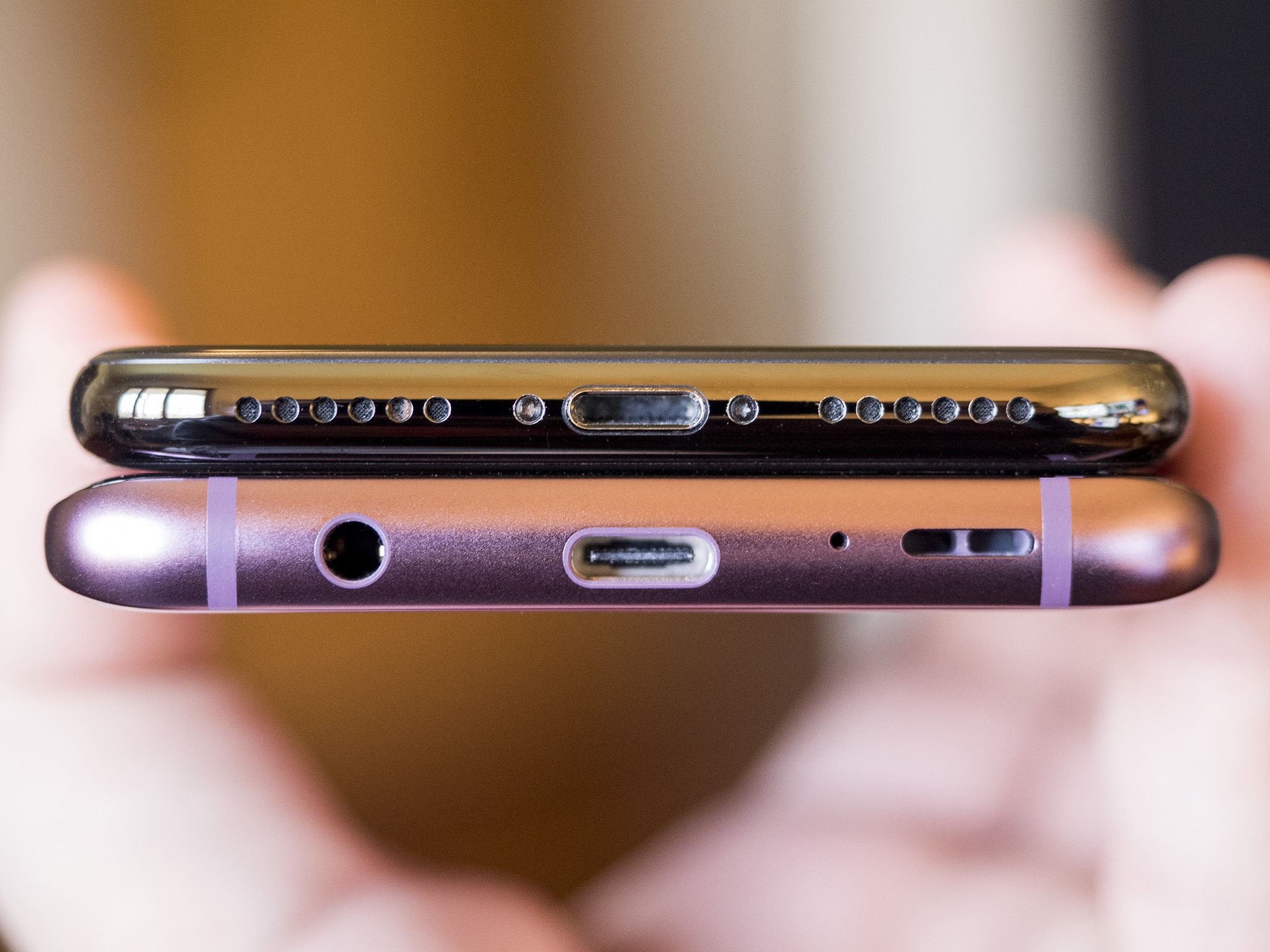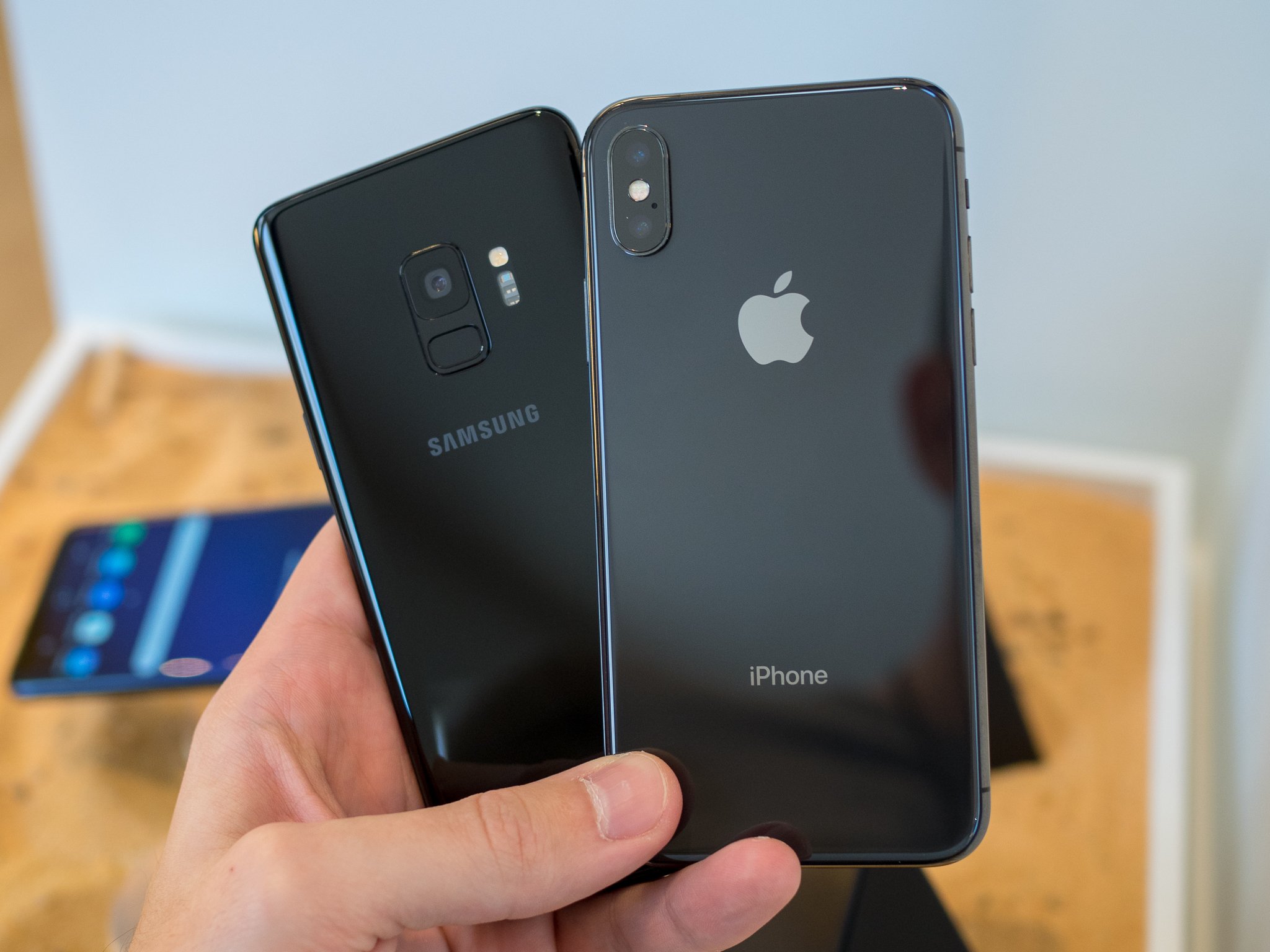Samsung Galaxy S9 battery life problems and what they mean for Apple

Lithium-ion batteries are getting a lot of attention these days. Everything from the Galaxy Note 7 recall to, yes, Apple's discounted battery replacement program for older iPhones, means that it's top of mind for many customers. So, it's not surprising the Exynos version of Samsung's Galaxy S9 is making headlines for its battery performance this week, and not in a good way.
From Yonhap News Agency:
The battery performance of Samsung Electronics Co.'s Galaxy S9 smartphone trailed behind rival products, industry watchers said Monday, causing consumers to express discontent.
From the same report:
Phone Arena, another industry tracker, also said in its report that the battery of the Galaxy S9 lasted 7 hours and 23 minutes in its test, which is an hour below the Galaxy S8's 8 hours and 22 minutes. Apple Inc.'s iPhone X and LG's V30 held comparable figures of 8 hours and 41 minutes and 9 hours and 34 minutes, respectively.
AnandTech tests were even more brutal:
The Exynos 9810 Galaxy S9 absolutely fell flat on its face in this test and posted the worst results among our tracking of the latest generation devices, lasting 3 hours less than the Exynos 8895 Galaxy S8. This was such a terrible run that I redid the test and still resulted in the same runtime.
Yonhap theorizes that Samsung Electronics has become more conservative about battery capacity, given the catastrophic failures consumers experienced with the Galaxy Note 7. But capacity alone is seldom, if ever, an issue, as Yonhap itself explains:
"Although the battery's capacity is also important, the phone's optimization algorithm is very crucial," an industry insider said. "The Galaxy S9 came with various new features, which possibly led to more stand-by power consumption. (Samsung) may have failed to develop power-saving algorithms properly."
It's possible there's something going wrong at the system level that's just burning power, even when it shouldn't, and Samsung can address it with an update. It's also possible Samsung's team, which is super smart in its own right, chose to ship the way it did in order to mitigate against other, potentially greater issues. We just don't know.
What we can infer is that Samsung recently began to care about single core performance. It's something Apple has cared about, and architected towards, for years. Samsung has obviously seen the advantage and is now making it a priority as well. But, drastically increasing single core performance has cost. Absent a die shrink or previous generations being so inefficient that there was significant room for improvement, that cost is power consumption.
Master your iPhone in minutes
iMore offers spot-on advice and guidance from our team of experts, with decades of Apple device experience to lean on. Learn more with iMore!
AnandTech put it this way:
This is such a terrible battery performance of the Exynos 9810 variant that it again puts even more clout into the new SoC. My theory as to why this happens is that not only do the higher frequency state require more energy per work done than competing SoCs – because this is a big CPU complex there's also lots of leakage at play. The DVFS system being so slow might actually be bad for energy here as we might be seeing the opposite of race-to-sleep, walk-to-waste. The fact that Apple's SoCs don't have any issues with battery life in this test showcases that it's not an inherent problem of having a high-power micro-architecture, but rather something specific to the Exynos 9810.
Also, this:
Unfortunately it feels like S.LSI keeps being one generation behind when it comes to efficiency – the A72 beating the M1, the A73 beating the M2 and now the A75 beating the M3. If you were to shift the microarchitectures one year ahead in Samsung's favour then suddenly we would have had a much better competitive situation. What needs to happen with the M4 is a much larger efficiency boost to remain competitive with ARM's upcoming designs and actually warrant the use of an internal CPU design team. Currently a 17-22% performance lead does not seem worth a 35-58% efficiency disadvantage along with the 2x higher silicon area cost.
The same applies to Samsung and Apple. Samsung perpetually feels a generation behind when it comes to efficiency.
Android Central's take:
That sort of battery performance is abysmal for a flagship phone like the Galaxy S9.
The truth is, hardware is tough. And silicon is especially tough.
Given infinite time, any good silicon team could design a system-on-a-chip that would achieve maximum performance at maximum efficiency up to the limits of known physics in our universe. Release schedules are the opposite of infinite time, though. You get a few years to plan, but you have to ship every year.
What Apple's done to meet that demand is to establish a solid foundation and to build and iterate on it each and every year.
Apple A7 was the first 64-bit ARM chip in a phone. Apple A10 Fusion introduced paired efficiency and performance cores, so that reaching higher wouldn't leave a gap beneath. Apple A11 Bionic increased the performance of the efficiency cores, while also introducing a neural engine and everything required to support Face ID. And all with at least the same, sometimes better battery life.
It's not just a multi-year plan, it's a multi-year investment.
To complicate matters, unlike Apple, Samsung has chosen to use two different chipsets for its phones: Exynos, which is made by Samsung's silicon company, and Snapdragon, which is made by Qualcomm. It's the Exynos version specifically that's experiencing these problems.
With Apple and its consistent processor architecture per year per device, everything is a known quantity. This season's iPhone X and iPhone 8, for example, all run on the same Apple A11 Bionic system-on-a-chip (SoC), on every carrier, in every region.
That means every component, from the rest of the hardware to all of the software, is a known quantity, and can work as part of an integrated whole to eek out as much performance while maintaining as much efficiency as possible.
Having two silicon targets just means, as opposed to infinite time, you have half the time to optimize for each.
Meanwhile, customers have come to expect phones that are faster and more battery efficient than ever. Oh, and lighter too.

(Internet experts love to talk about increasing battery size, but lightness is an incredibly important part of usability — never mind thermal insulation and RF interference, no one wants to buy the heaviest phone on the carrier shelf.)
Meeting and exceeding those expectations is a huge challenge. Pack a battery wrong and it burns. Boost performance wrong and it burns out.
But architect it right and the performance doesn't come at the expense of the efficiency. The efficiency enables the performance.
Not everyone thinks about these things when buying a phone, or when arguing about specs on Twitter.
But it's clear Apple is thinking about it deeply. And it shows in iPhone X, where the custom silicon drives everything from the machine learning-based biometrics to the display technology to the industry leading performance and, yes, the power efficiency that allows for extended battery life as well.
And it's absolutely something consumers should think about not just when buying a phone but when investing in platform.

Rene Ritchie is one of the most respected Apple analysts in the business, reaching a combined audience of over 40 million readers a month. His YouTube channel, Vector, has over 90 thousand subscribers and 14 million views and his podcasts, including Debug, have been downloaded over 20 million times. He also regularly co-hosts MacBreak Weekly for the TWiT network and co-hosted CES Live! and Talk Mobile. Based in Montreal, Rene is a former director of product marketing, web developer, and graphic designer. He's authored several books and appeared on numerous television and radio segments to discuss Apple and the technology industry. When not working, he likes to cook, grapple, and spend time with his friends and family.
